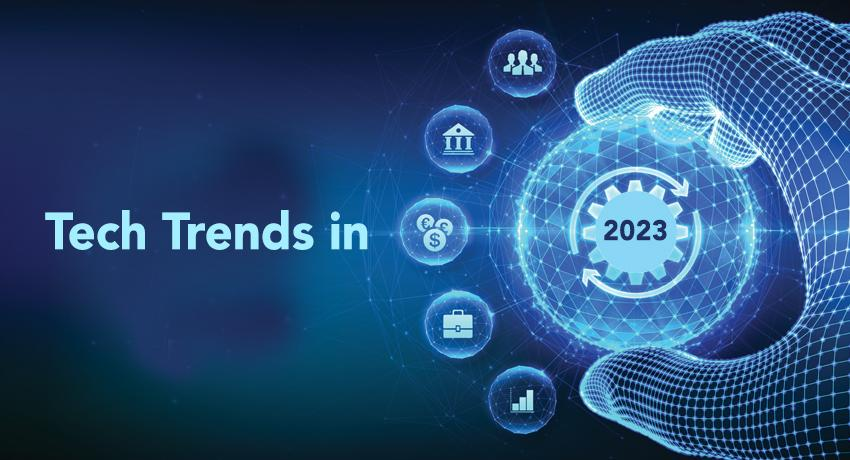The Information Age, alternatively known as the Computer Age, Digital Age, Silicon Age or New Media Age, is a mid-20th century period that is characterized by a shift from traditional industries to an economy being built on information technology. As of the current date of 2023, information technology has become an invaluable part of every industry we know of. It has reimagined entire business designs, models and processes therein. Let’s have a look at some compelling tech trends that have engulfed our interest. Extended Reality (XR) XR is a combination of virtual and augmented reality to create immersive experiences. It is being used in several fields such as education, gaming, healthcare, etc. However, it is re-envisioning the financial sector. XR is being used for purposes such as training, visualization, customer engagement, risk management, etc. For instance, XR can be used to visualize financial models in 3D allowing analysts to gauge relationships between different variables. Or, banks can use ER to create virtual tellers and access financial information and services. To list down, XR has several usages in the financial sector, transforming its functionality. Quantum Computing The development of quantum computers, which use quantum bits (qubits) instead of classical bits, has the potential to revolutionize industries such as finance, healthcare, and transportation. Speaking about the financial sector, quantum computing can enable financial institutions to perform complex organization calculations which can lead to better portfolio management and risk diversification for investment companies. It is also swift in undermining risk factors in real-time which allows companies to develop a better risk-averse model. Internet of Behaviours (IoB) The IoB is a concept that refers to the collection and analysis of data from various sources such as social media, mobile devices, and wearable technology to gain insights into people’s behaviours and preferences. This technology is a big gain for the financial sector as it contributes heavily to predictive analysis and consumer insights. Given that the financial sector is reimagining its approach and turning customer-centric, IoB ensures its vision meets reality. Autonomous Systems Autonomous systems such as AI and ML have a significant impact in several fields, especially the financial sector. Ranging from fraud detection, consumer insights and experience, trading and risk assessment to compliance, AI and ML contribute to every bit. For instance, the development of chatbots with the help of AI has allowed financial institutions to understand and resolve consumer grievances/preferences almost in real-time. This ensures an enhanced customer experience (CX). Blockchain As we know, blockchain is a decentralized, distributed ledger technology that provides a secure and transparent way of storing and sharing information. Means, it benefits the finance industry in numerous ways, especially in handling critical functions like payments, settlements, asset management, etc. With the help of blockchain, financial institutions can structure and implement better, more secure and quicker services with much lower costs. Edge Computing Edge computing refers to the processing and analyzing of data at or near the source, rather than sending it to a centralized data center. In the financial sector, edge computing can help to improve operational efficiency, reduce costs, and enhance customer experience. For example, edge computing enables financial institutions to process and analyze their data real-time leading them to make quicker and better-informed decisions thereby reducing their risk quotient. We understand that technology is ever-evolving and with each passing phase, we will experience a new revolution however today, these trends are making a visible mark in several domains, especially the financial sector.
